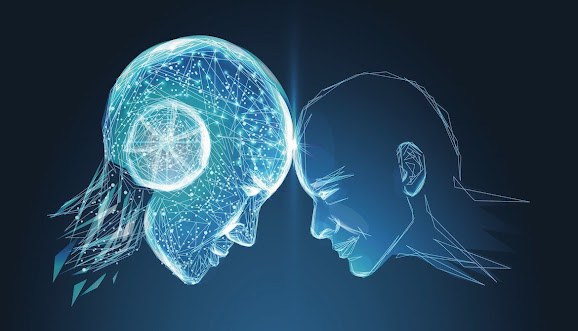Introduction:
In
today's rapidly evolving technological landscape, the rise of artificial
intelligence (AI) has ignited a fascinating debate: Can AI ever truly surpass
human intelligence? While AI has made remarkable strides in various fields,
from image recognition to natural language processing, whether
it can outperform the human mind remains a topic of immense curiosity and
speculation. In this blog post, we will explore the nuanced relationship
between AI and humans, highlighting the potential for synergy and collaboration
that can lead us toward a brighter and more efficient future.
1.
The Power
of AI:
Artificial
intelligence has revolutionized industries worldwide, unlocking unprecedented
opportunities for automation, data analysis, and problem-solving. AI algorithms
can process vast amounts of information, learn from patterns, and make
predictions with remarkable accuracy. They excel in tasks that require speed,
precision, and consistency, often surpassing human capabilities. From
self-driving cars to medical diagnostics, AI has already proven its prowess in
many domains, transforming the way we work and live.
2.
The Unique
Human Touch:
While
AI showcases impressive computational abilities, humans possess a unique set of
qualities that cannot be replicated by machines. Emotional intelligence,
creativity, critical thinking, and empathy are just a few examples of human
attributes that play a vital role in decision-making, problem-solving, and
building meaningful connections. Human intuition, adaptability, and the ability
to learn from experiences remain valuable assets that complement AI's
computational power.
3.
Synergy,
not Competition:
Rather
than viewing AI as a threat to human intelligence, we should embrace the
potential synergy between humans and machines. By leveraging the strengths of
each, we can achieve outcomes that surpass what either could accomplish alone.
Collaborative efforts between humans and AI have already demonstrated
incredible results in fields such as medicine, finance, and scientific
research. For instance, AI-powered medical systems can provide accurate
diagnoses, while doctors bring their expertise and compassionate care to
patients. This collaborative approach harnesses the power of technology while
preserving the human element.
4.
Ethical
Considerations:
As
AI continues to advance, it is crucial to address ethical concerns surrounding
its development and deployment. Transparent decision-making algorithms,
unbiased data sets, and accountability measures are vital to ensure AI operates
ethically and responsibly. Humans must play an active role in defining ethical
boundaries and setting guidelines to prevent potential biases or misuse of AI
technologies. By integrating human values into AI systems, we can shape a
future that aligns with our collective aspirations.
Conclusion:
The debate of AI versus human intelligence should not be
seen as a competition but as an opportunity for collaboration. AI empowers us
to solve complex problems, automate mundane tasks, and uncover new frontiers.
However, it is the combination of AI's computational power with the human touch
of creativity, empathy, and critical thinking that will lead us toward a
smarter, more innovative future. By embracing synergy, fostering ethical
practices, and harnessing the best of both worlds, we can create a harmonious
partnership between AI and human intelligence, unlocking unprecedented
possibilities for the betterment of society.


0 Comments